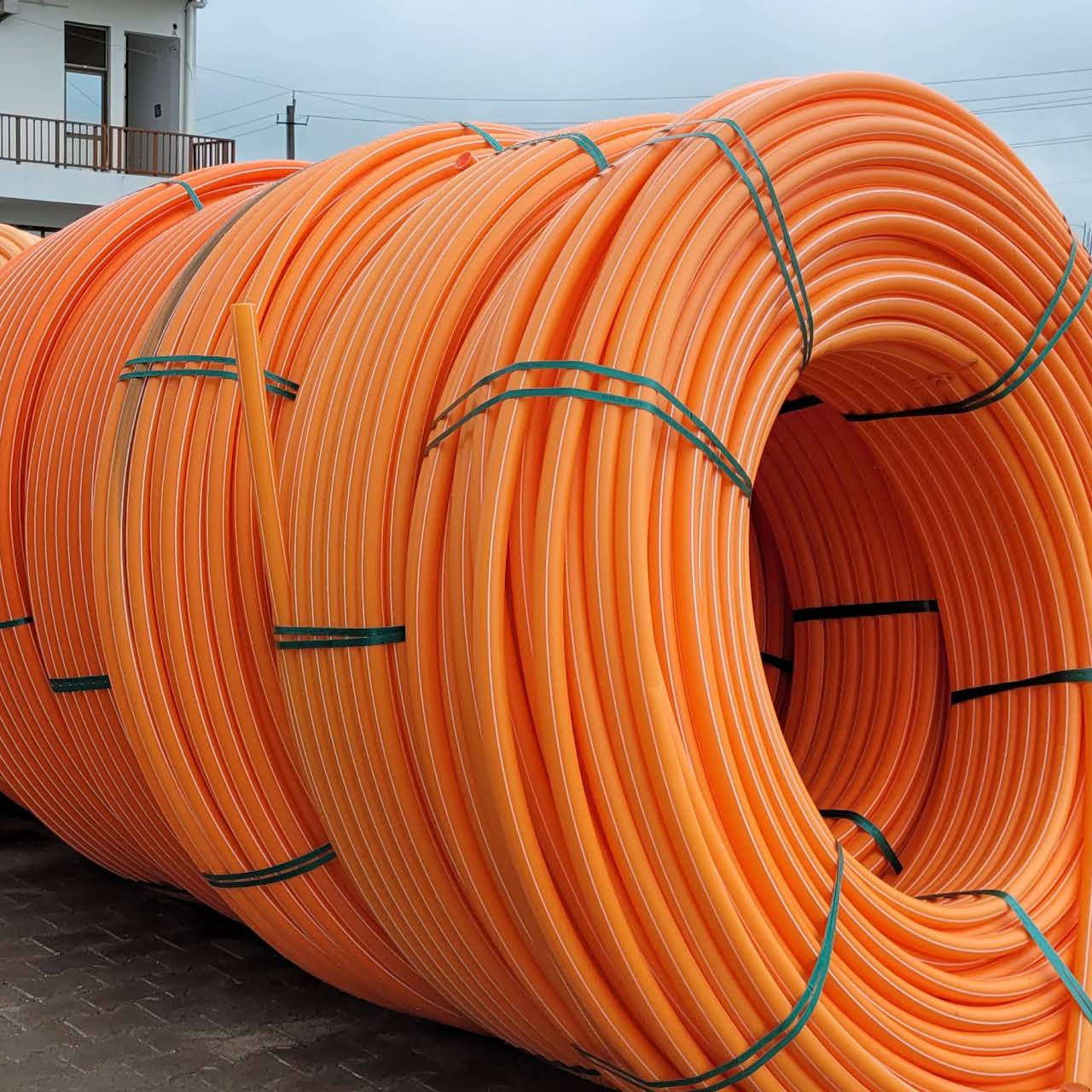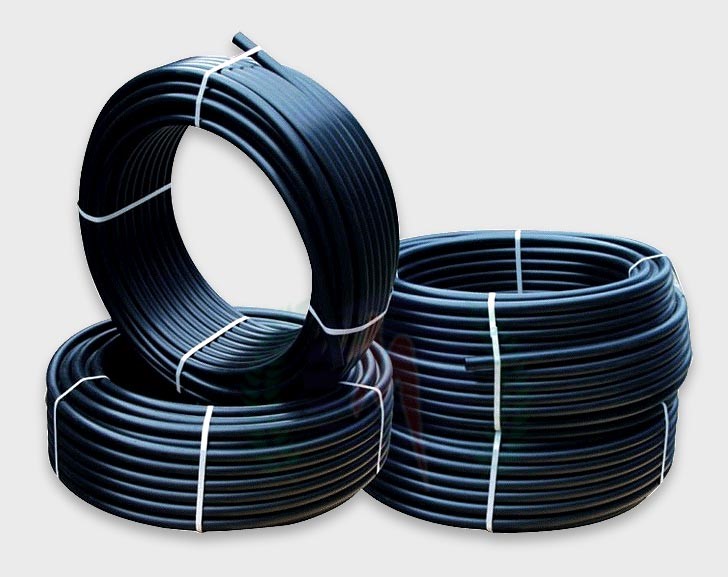Exploring American Plastics HDPE Pipe Manufacturing and Its Role in Modern Infrastructure
A Comprehensive Guide to the Various Usages of HDPE Pipe in Building And Construction and Industry
HDPE pipes have emerged as a crucial part in contemporary building and industrial applications. Their one-of-a-kind residential properties, such as resistance to deterioration and lightweight layout, make them suitable for a variety of uses. From supply of water systems to farming watering, HDPE pipes supply services that enhance efficiency and sustainability. Comprehending their varied applications is important for experts aiming to maximize facilities. What details advantages do these pipes offer each market?
Supply Of Water and Distribution Equipments
Water supply and circulation systems are important parts of city framework, frequently relying upon high-density polyethylene (HDPE) pipelines for their longevity and performance. These systems transport safe and clean water from therapy centers to customers, making sure access and security. HDPE pipelines are favored for their resistance to corrosion, chemicals, and severe temperatures, which enhances their durability and reduces maintenance prices. Furthermore, their lightweight nature enables much easier setup and transport, making them excellent for numerous urban and country applications.
The flexibility of HDPE pipelines allows them to be set up in tight areas and around barriers, reducing the requirement for extensive excavation (hdpe pipe fittings Midland TX). Their smooth indoor surface reduces rubbing losses, boosting water flow rates. As cities continue to expand, the demand for reliable water systems raises, placing HDPE pipes as a lasting solution for contemporary facilities projects. Their proven record makes them a preferred selection among engineers and city organizers alike
Wastewater Management and Therapy
Effective wastewater management and treatment are necessary for maintaining public health and ecological top quality. HDPE pipelines play an essential function in this procedure because of their durability, resistance to corrosion, and capacity to endure harsh chemicals. These pipelines are commonly utilized in various applications, consisting of sewer system, stormwater water drainage, and wastewater treatment centers. Their lightweight nature facilitates less complicated setup and transportation, lowering labor prices and time.
Additionally, HDPE pipelines have a smooth indoor surface area that minimizes rubbing loss, promoting effective flow rates. They are also much less susceptible to leaks and failures contrasted to typical products, making certain that pollutants are included properly. Moreover, their flexibility permits for versatility in various dirt conditions, making them ideal for varied environmental setups. As markets progressively focus on lasting practices, making use of HDPE pipes in wastewater administration systems straightens with objectives for decreasing environmental influence and boosting source recovery.
Agricultural Irrigation Solutions
In agricultural settings, effective watering options are essential for maximizing crop yields and handling water sources. HDPE (High-Density Polyethylene) pipes play a crucial function in modern watering systems because of their durability, adaptability, and resistance to rust. Their ability to stand up to high Pipe Manufacturing Midland TX pressures makes them suitable for both surface and subsurface irrigation applications, ensuring consistent water distribution throughout areas.
Farmers can utilize HDPE pipelines in drip irrigation systems, which deliver water straight to plant origins, decreasing waste and promoting healthy growth. Additionally, these pipes are lightweight and easy to set up, lowering labor prices and installation time. Their lengthy lifespan and low maintenance needs additionally enhance their allure in farming methods.
In addition, HDPE pipelines are eco pleasant, as they can be recycled and do not seep hazardous chemicals right into the soil. This makes them a sustainable choice for farmers aiming to embrace green farming techniques while taking full advantage of efficiency.
Industrial Applications and Procedures
Convenience is a trademark of HDPE pipelines, making them important in different commercial applications and processes. These pipes are commonly utilized in chemical handling industries due to their superb resistance to a vast array of harsh substances. HDPE's lightweight nature, incorporated with high tensile toughness, enables very easy setup and long-term performance in demanding atmospheres.
In the oil and gas field, HDPE pipes play an important duty in transporting hydrocarbons and gases, thanks to their longevity and flexibility - Texas hdpe pipe manufacturer. Additionally, they are employed in mining operations for the transportation of slurry and other materials, where standard piping systems might stop working
HDPE pipes are progressively used in making facilities for water supply lines and wastewater administration. Their capability to endure extreme temperatures and stress makes them appropriate for a variety of commercial processes. On the whole, HDPE pipes contribute considerably to effectiveness and safety throughout diverse industrial applications.
Stormwater Management and Drain Systems
Stormwater monitoring and water drainage systems are critical elements in city facilities, designed to take care of excess rainfall and minimize flooding threats. High-density polyethylene (HDPE) pipes are progressively utilized in these systems as a result of their longevity, versatility, and resistance to corrosion. These pipes efficiently move stormwater away from booming locations, minimizing surface area overflow and stopping waterlogging.
HDPE's lightweight nature facilitates less complicated installment, decreasing labor costs and building time. In addition, its resistance to chemicals and ecological stress factors assurances durability and dependability in various climates. Along with standard drain applications, HDPE pipelines are likewise employed in ingenious services such as eco-friendly framework, which consists of rainfall gardens and absorptive pavements.

Regularly Asked Questions
Exactly How Does HDPE Pipe Contrast to PVC Pipeline in Expense?
As a whole, HDPE pipe tends to be much more pricey than PVC pipeline as a result of its enhanced sturdiness and versatility. Lasting expense considerations, such as upkeep and life-span, may favor HDPE in specific applications.
What Is the Lifespan of HDPE Pipes Under Varying Problems?
HDPE pipes normally have a life expectancy of 50 to 100 years, relying on environmental problems, setup techniques, and use. Variables such as temperature, dirt type, and direct exposure to chemicals can considerably affect their durability.
Can HDPE Pipeline Be Recycled After Use?
Yes, HDPE pipelines can be recycled after usage. The reusing process involves thawing down the product, permitting it to be repurposed into new items, consequently advertising sustainability and decreasing environmental effect connected with plastic waste.
Are There Any Certain Setup Difficulties With HDPE Pipelines?
Installation challenges with HDPE pipes consist of proper jointing techniques, making certain adequate trench conditions, and taking care of thermal growth. Additionally, proficient labor is called for to take care of customized devices, which can make complex the setup process in numerous settings.

What Accreditations Should I Search For When Investing In HDPE Pipelines?
When purchasing HDPE pipelines, one ought to seek qualifications such as ASTM, AASHTO, and ISO, which confirm top quality and conformity with market requirements, guaranteeing toughness and efficiency in various applications. - American Plastics HDPE Pipe for Oilfield